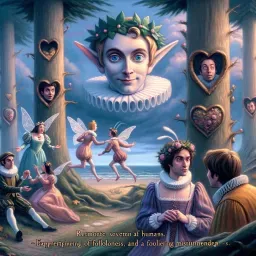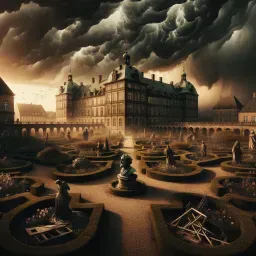What's done cannot be undone

0
0
0
0
- Meaning
- This phrase conveys the idea that past actions are irreversible. It suggests that dwelling on the past is futile because no matter how much one regrets or wishes to change it, the actions have already happened and their consequences are set. The underlying message encourages acceptance and moving forward, rather than being stuck in the past.
- Allegory
- The flowing river represents time’s unstoppable forward movement, while the person dropping flowers signifies letting go of past actions or regrets. The flowers floating downstream symbolize the idea that what’s done cannot be retrieved. The radiant sunrise in the background suggests new beginnings and hope, emphasizing that despite the past being unchangeable, the future still holds promise. This allegorical representation encapsulates the message of acceptance and the importance of moving forward.
- Applicability
- In personal life, this phrase can serve as a powerful reminder to let go of regrets and focus on the present and future. By accepting that past mistakes can't be changed, individuals can reduce anxiety, guilt, and frustration. It promotes resilience and the importance of learning from past experiences while emphasizing personal growth and forward momentum.
- Impact
- This phrase has had a significant cultural impact, often cited in literature, film, and everyday conversation. It emphasizes the importance of responsibility and the irrevocability of actions, which resonate in various contexts, from personal development to legal and moral discussions. Its persistent relevance underscores the universal truth of the human experience it expresses.
- Historical Context
- The phrase originates from William Shakespeare’s play "Macbeth," written around 1606 during the early 17th century in England. This period marks the English Renaissance, where literature and the arts flourished. Shakespeare’s works often explored themes of fate, ambition, and the human condition, greatly influencing Western literature.
- Criticisms
- One potential criticism is the fatalistic tone it carries, which some might argue discourages efforts to remedy the consequences of past actions. While the past can't be changed, the idea that nothing can be done to address or mitigate the impact could be contested. There are ways to seek redemption or make amends, which this phrase might seem to overlook.
- Variations
- A common variation is "What's done is done," which carries the same meaning. Across cultures, similar sentiments are expressed, such as the Spanish "Lo hecho, hecho está" and the French "Ce qui est fait est fait," reflecting a shared understanding of the irreversibility of the past.
-

The golden age is before us, not behind us.
-

The robbed that smiles, steals something from the thief.
-

Uneasy lies the head that wears a crown.
-

Lord, what fools these mortals be!
-

A man can die but once.
-

To weep is to make less the depth of grief.
-

I am one who loved not wisely but too well.
-

Is this a dagger which I see before me, the handle toward my hand?
-

To thine own self be true.
-

If you prick us, do we not bleed?
-

Something is rotten in the state of Denmark.
-

Double, double toil and trouble; fire burn and cauldron bubble.
No Comments